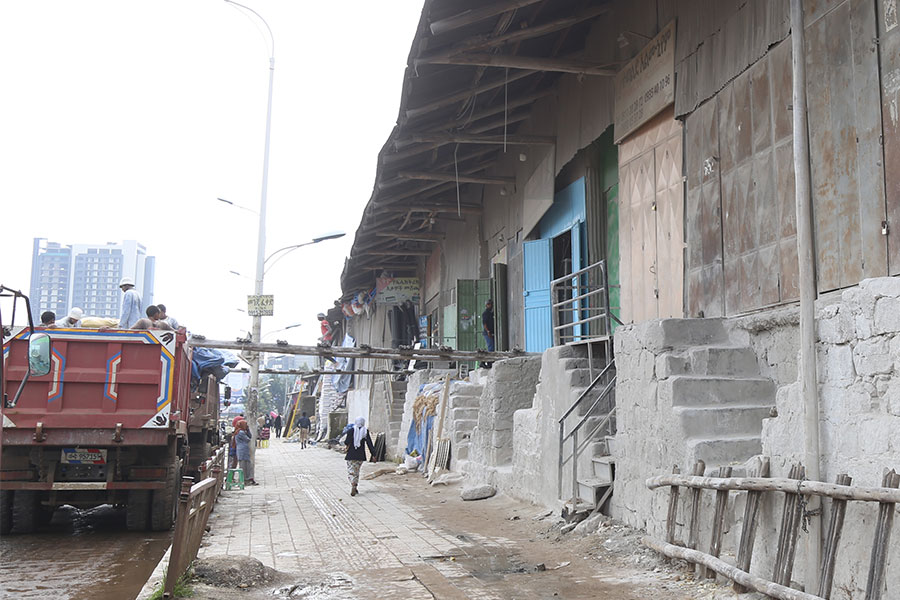
Jun 8 , 2019
A group of economics gurus from Harvard University were in town last week, trying to help the federal government chart a new course for the national economy, gossip learned. Paid by USAID, these economists were having conversations with the notables in the macroeconomic field of Ethiopia, hoping to unlock the bottleneck in the liberalisation mantra of the administration of Prime Minister Abiy Ahmed (PhD), claims gossip.
The Prime Minister has surrounded himself by young and mainly Western-educated aides in his bid to restructure the economy. Eyob Tekalegn, state minister for Finance & Economic Cooperation, chairs his reform committee, which authored a 40-plus page blueprint for reform, according to gossip. Endorsed by the Council of Ministers two weeks ago, details are hard to come by; but, mostly, the document wants to rebalance growth drivers in the economy.
These reform-minded young men have in mind a growth model that believes in the might of the state. For over a decade, policymakers were keen to see the state and the many enterprises it owns as instruments to affect economic growth. Thus, a significant amount of finance was directed to them.
In the four years beginning with 2015, domestic debt held by the public sector doubled to close to 800 billion Br. Of these, state-owned enterprises had issued bonds and took loans worth over 380 billion Br, much of it funneled through the state-owned Commercial Bank of Ethiopia (CBE), which holds 56pc of the debt.
This has put the CBE at higher risk than its management is prepared to admit, claims gossip. A single borrower, the state-owned Ethiopian Electric Power (EEP), claims close to 290 billion Br in debt, an amount that surfaces conveniently in the CBE’s books to beef up its profit but is very doubtful to be paid back in full, gossip disclosed.
Guaranteed by the federal government, it will not be long before its board of directors, chaired by Ahmed Abitew, confronts the management board led by its president, Bacha Gina, over such unpleasant facts, claims gossip. Of the 10 directors currently serving on the CBE board, two are very close to the Prime Minister: Mamo E. Miheretu, Ethiopia’s chief trade negotiator and policy reform advisor, and Temesgen Tiruneh, his chief national security advisor.
Changing this direction to let those in the private sector get access to finance, if not ease the regulatory and bureaucratic burden in doing business, is the primary focus of the blueprint, claims gossip. Hence, of the over 400 billion Br the banking industry has advanced in loans over the past 11 months, the amount that was disbursed to private borrowers has increased by 45pc, gossip learnt.
Policy advisors feel that the picture at the macroeconomic level looks positive, judging by how much consumption in electricity, fuel, edible oil and consumer goods has increased. Revenues generated from remittance and flowing from foreign direct investments is on the rise, helping the foreign exchange reserve position improve.
To the contrary though, the market feels the slowdown in economic activities in broader terms, where individual income is eroded due to galloping inflation and the continued loss of the value of the Birr against other currencies. Obviously, the construction sector, the main driver of the service sector, has been in a slump leading to massive layoffs; factories are working far below their capacities; and national productivity in agriculture is not as much as projected earlier this year.
What drives inflation? Which sector of the economy stimulates growth? In a situation where the state is not driving public investments, where does all the money advanced to the private sector go?
These are the million dollar questions economic policy reformers and the guys from Harvard seem to find hard to crack, gossip observes.
PUBLISHED ON
Jun 08,2019 [ VOL
20 , NO
997]

Viewpoints | Aug 08,2020

Fortune News | Jul 30,2022

Radar | Nov 11,2023

Fortune News | Nov 09,2019

Radar | Sep 14,2019

My Opinion | 132038 Views | Aug 14,2021

My Opinion | 128435 Views | Aug 21,2021

My Opinion | 126362 Views | Sep 10,2021

My Opinion | 123981 Views | Aug 07,2021





Dec 22 , 2024 . By TIZITA SHEWAFERAW
Charged with transforming colossal state-owned enterprises into modern and competitiv...

Aug 18 , 2024 . By AKSAH ITALO
Although predictable Yonas Zerihun's job in the ride-hailing service is not immune to...

Jul 28 , 2024 . By TIZITA SHEWAFERAW
Unhabitual, perhaps too many, Samuel Gebreyohannes, 38, used to occasionally enjoy a couple of beers at breakfast. However, he recently swit...

Jul 13 , 2024 . By AKSAH ITALO
Investors who rely on tractors, trucks, and field vehicles for commuting, transporting commodities, and f...

Jul 12 , 2025
Political leaders and their policy advisors often promise great leaps forward, yet th...

Jul 5 , 2025
Six years ago, Ethiopia was the darling of international liberal commentators. A year...

Jun 28 , 2025
Meseret Damtie, the assertive auditor general, has never been shy about naming names...

Jun 21 , 2025
A well-worn adage says, “Budget is not destiny, but it is direction.” Examining t...

Jul 13 , 2025 . By YITBAREK GETACHEW
The Addis Abeba City Revenue Bureau has introduced a new directive set to reshape how...

Jul 13 , 2025 . By BEZAWIT HULUAGER
Addis Abeba has approved a record 350 billion Br budget for the 2025/26 fiscal year,...

Jul 13 , 2025 . By RUTH BERHANU
The Addis Abeba Revenue Bureau has scrapped a value-added tax (VAT) on unprocessed ve...

Jul 13 , 2025 . By NAHOM AYELE
Federal lawmakers have finally brought closure to a protracted and contentious tax de...